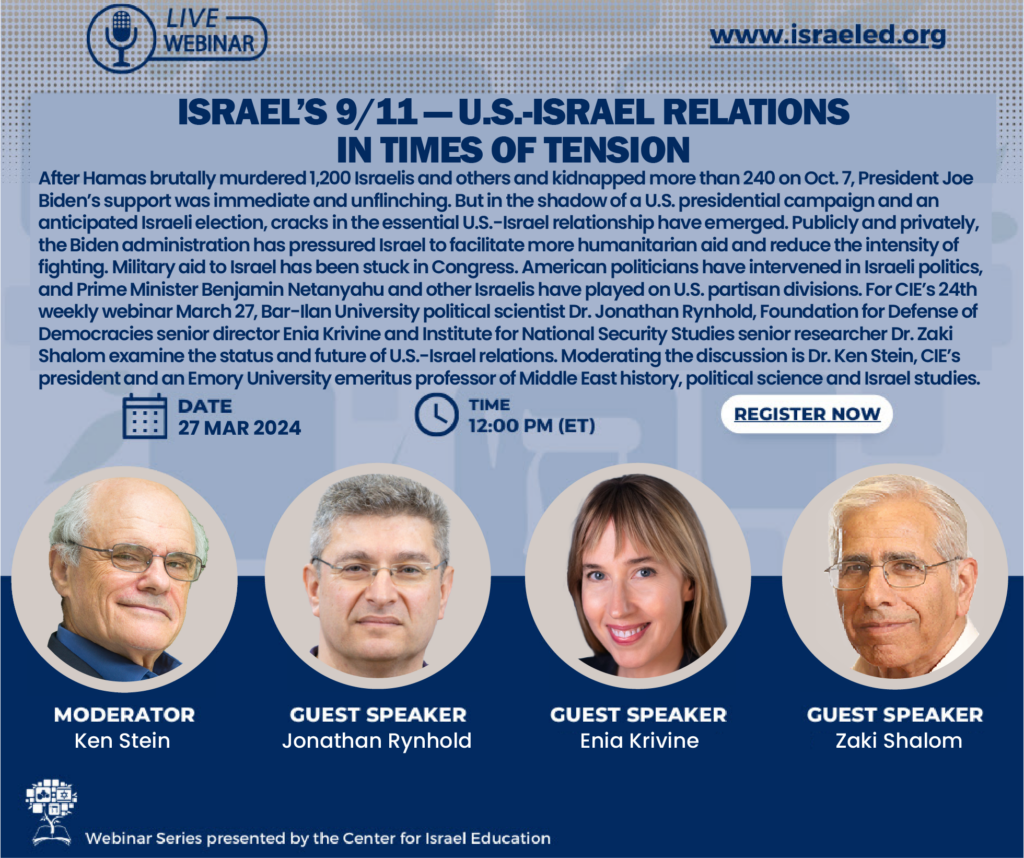After Hamas brutally murdered 1,200 Israelis and others and kidnapped more than 240 on Oct. 7, President Joe Biden’s support was immediate and unflinching. But in the shadow of a U.S. presidential campaign and an...

By Topic
Find content relevant to your specific interests or area of study.
By Type
Choose the format that best suits how you want to engage with the content.
By Language
Access content in the language that best supports your learning.
By Era
Explore content organized by historical period to focus your learning by timeframe.

After Hamas brutally murdered 1,200 Israelis and others and kidnapped more than 240 on Oct. 7, President Joe Biden’s support was immediate and unflinching. But in the shadow of a U.S. presidential campaign and an...

While the Palestinian official leading the technocratic Gaza administration promises to open the Rafah Crossing and the Bulgarian high commissioner for Gaza urges the world to focus on the big picture, U.S. envoy Jared Kushner lays out a vision for Gaza as a rapid, phased real estate redevelopment.

A Zionist delegation to the Paris Peace Conference makes an effective, largely successful case for the League of Nations to incorporate a future Jewish national home into the British Mandate for Palestine.

The Trump administration’s proposed charter for the Board of Peace, the body the United Nations has charged with overseeing the Gaza ceasefire, does not mention Gaza or any other specific location of operation but does grant its chairman, Donald Trump, extensive control over its mission and operations.

Three years after the Israeli government began the process to overhaul the judiciary, and after two years of war delayed efforts, the drive to rein in judicial independence continues.

Former Supreme Court President Aharon Barak makes the case against the Netanyahu government’s efforts to overhaul the judiciary, arguing that Israeli democracy requires judicial independence and protection for minority rights.

Supreme Court President Yitzhak Amit warns about the danger to the Israeli public and democracy of sustained political attacks on the judiciary and individual judges.

Updated January 5, 2026; originally posted October 2023. By Ken Stein CIE+ Reliable resources for deeper Israel understanding Embrace informed content on Israel, the Middle East and the Diaspora. Begin with 7 days free to…

A week of unrest in Iran does not guarantee a revolution even if 85-plus million Iranians are angry at the country’s autocratic, theological rulers. Iran is a security-clerical oligarchy where kleptocracy, cronyism and authoritarianism have…

Maya Rezak and Ken Stein, December 31, 2025 Yousef Algoos, “MBS in Washington: A new era of strategic tech-alliance,” Al-Arabiya, December 14, 2025. Thomas Albery, “A Crisis of crises: What is going on in Iran?”…
